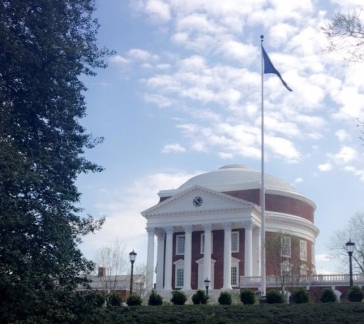
Before applying to law school, I was unaware of the ways the college process differs from the law school process. I’ve put together a few of the biggest surprises I encountered applying and committing to a law school:
The status-checker rabbit hole is real. Schools provide applicants with an online status checker to allow them to stay updated on the progress of their application. This tells them when the application is received, when it is deemed complete, and in most cases, when it goes under review by staff. When an application is looked at by a second or even sometimes third person, the date on the status checker changes to reflect the most recent date that the application was reviewed. Different schools have different patterns from which when your date does and does not change that can drop hints about what your outcome might be and/or when you may hear the final decision (such as schools being known for accepting people whose review changes on certain days of the week, or replying to people within a certain number of days after a status checker change). Most of the school-specific information is available on websites such as Top Law Schools. I found myself refreshing status checkers multiple times per day at some points, willing to see a date change that might just mean I would get in. I almost wish I never got invested in this, because though it did give me mostly accurate heads-up about when and/or in what direction my application status was going, it made it impossible for me to stop thinking about my applications.
There are many different types of interviews used by various schools, and the people conducting them are generally very nice. Many law schools do not conduct any interviews, some attempt to interview all applicants, and others interview selectively. Throughout my law school process, I interviewed for four of the seventeen schools I applied to. I had a group interview, a phone interview, an alumni interview, and an in-person interview with a Dean of Admissions. All of the people who interviewed me were down to Earth, friendly, and approachable. None of them wanted to point out the weaknesses of my application or grill me on my life choices. There were no trick questions that I felt unprepared for, and I left remembering that personnel conducting interviews have an interest in giving you a positive impression of their school. They don’t find joy through torturing people in interviews.
Yes, admission is rolling; no, this is not a guarantee you’ll hear back in a timely manner. I submitted my applications in late October, and figured the only people hearing back from schools in late March/April would be people who submitted right before the deadline. In short, I was wrong. One school I applied to did not send out a single waitlist offer until late April regardless of when the person submitted their application. Other schools seem to wait until after the application deadline when they have a more complete picture of the applicant pool to respond to certain borderline applicants. The rolling admissions process gives the possibility for, but doesn’t guarantee, a swift, timely response. Another important point is that hearing back late doesn’t always mean waitlist or rejection. I was accepted to the school I will be attending in late March, once I had already convinced myself that I had no chance of being accepted. This process differs by school, but it is helpful to remember that silence itself isn’t a no.
It’s commonplace to negotiate for scholarship money. For many people, myself included, the idea of trying to negotiate for scholarship money is nerve-wracking and generally unpleasant. However, many people do it, and there’s no shame in it. I inquired about merit aid from the three schools that did not initially offer me any, and two of them granted my request. The worst thing that can happen is they can say no, and though it is a bit awkward if they do, it is worth trying. Law schools, though they definitely don’t love this practice, accept that it is common and will not hate you or rescind your application if you inquire about aid.
Many law students are enthusiastic about helping prospective students. I was consistently surprised and impressed by how friendly and genuinely helpful the students I spoke to at various law schools were. One student, who I will call Carla, mentioned to me that she places great importance on recruiting the classmates she wants. For her, this meant helping to recruit more LGBTQ students by going above and beyond to make sure admitted students were welcomed with open arms. Every student I interacted with at every school I went to wanted to talk to me about my law school choices, tell me why they like their school best, and help me work through the separating factors between schools I was looking at. I met one other noteworthy student, who I will call Yasmin, who after just half an hour of having coffee with me told me that if I chose to attend that school, she would sit down with me in the beginning of the year and teach me how to outline effectively. I was so touched that this person who barely knew me would offer to do that. It really goes to show that law students aren’t just conversing with prospective students out of a feeling of obligation, but because they are invested in bringing more people similar to themselves into their school community.
Anything in particular about the law school application process you’d like to hear more about? Please let me know!
Way to go Hanaa!
LikeLike